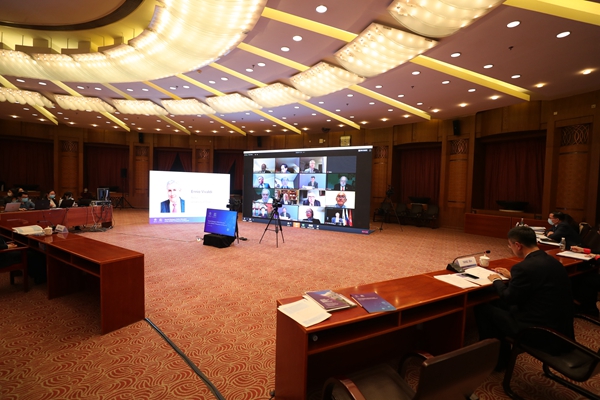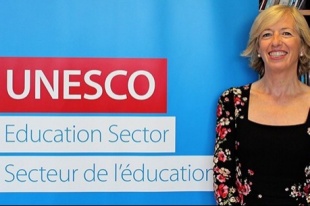Pandemic may alter future global approach to education


The school moved nearly 4,000 courses online in mid-February on its self-developed Rain Classroom, an interactive teaching mini-program on WeChat.
"Our research demonstrates that compared to in-person classes, class attendance rates of online courses have been improved. In addition, the interactions between faculty and students have improved considerably, particularly the tech-facilitated interactions in some large classes," Qiu said, adding that the screens are no barrier for vivid interaction, but rather new bridges between faculty and students.
Like Qiu, many representatives said the pandemic has become a catalyst for higher education institutions worldwide to search for innovative solutions.
"We must make major changes in the way we teach and conduct research because of this pandemic," Peter Salovey, president of Yale University, said at the meeting, adding that this includes embracing technology as a force for good in education and working together to understand how to create effective online programs that "blend together the best of two worlds, one physical and one virtual".
"Once this crisis is behind us, we will explore and increase the number of students earning professional degrees in critical areas of research and practice through online programs from locations around the world," Salovey said. Yale started remote teaching on March 23.
Salovey said that the current remote teaching experience will help shape the way we think about and discuss online education moving forward, and will influence the decisions that are made for classroom teaching.
More than just moving traditional teaching online, remote education requires a move away from the old paradigm of teaching to a new pedagogy that matches the capabilities and limitations of digital offerings, Alice Gast, president of Imperial College London, said.
The school has moved beyond students by offering free, online STEM (science, technology, engineering and math) course materials for parents to better cover science in home schooling.
Besides the lasting influence on education, Meric Gertler, president of the University of Toronto, said more efforts must be made for the special needs of students, such as those with hearing and sight impairments who are difficult to accommodate, especially remotely.
"When it is all over and we're able to return to something like normal, our new normal will be different from what came before, but not that different," Gertler said.
"Despite the potential for remote learning to achieve more than we previously imagined, our students will be clambering to return to the classroom.
"They miss the sociability of the in-person learning experience, including opportunities to learn alongside, and from, one another. They also miss learning from experience and learning by doing."




































